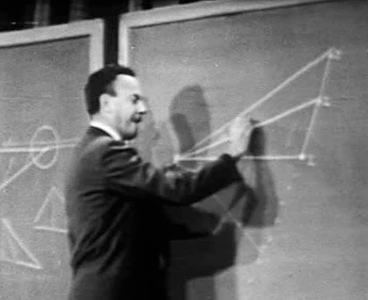Charlot123
Well-Known Member
- Joined
- Jul 29, 2018
- Messages
- 8,348
- Reaction score
- 56,518
As
The most humane, the sincerest and the saddest part of Feynman’s life was his relationship with his first wife, Arline, who died young. His achieved the most after her death, but I wonder if a part of him died with Arline. IMHO, after that, he must have taken the personal losses of the astronauts’ families close to heart. In his dissenting opinion, Feynman describes the toxic connection: first, NASA management drastically underestimates the risks of catastrophic failure, then sells their unrealistic opinion of flights safety to laymen, of which one, Christa McAuliffe, falls the victim. If Feynman was so harsh on rocket scientists (who, btw, were far from inadequate), just imagine him commenting on Stockton Rush’s arrogance, cavalier attitude to his escapades and safety-blindness. (Unafraid to argue with Niels Bohr, Feynman couldn’t care less about the Mayflower, he’d just leave Rush in the dust).
But Feynman had no filter in other areas, that’s why he’d periodically get in trouble. This is where I see some parallels with Rush.
Feynman may have had an extremely high opinion of himself, but as you note it was deserved and based on his long, long list of achievements. Not because his ancestors came over on the Mayflower and he inherited a lot of money.
And Feynman would have never confused facts with what he wanted to be true. As a practicing scientist, Feynman understood the difference between theorizing something and running experiments and tests to actually prove the theory correct. Rush just assumed if he thought something was true ("carbon fiber would make a good pressure hull"), then reality would bend to his will.
This reminds me of the clip from a young Feynman's physics lecture at Cornell: "It doesn't make a difference how beautiful your guess is. It doesn't make a difference how smart you are; who made the guess, or what his name is. If it disagrees with experiment, it's wrong."

Free: Richard Feynman’s Physics Course from Cornell (1964)
We're beaming you back to 1964. Richard Feynman, our favorite Bongo-playing, Nobel Prize-winning physicist, reduces science to the barest essentials, to its most fundamental truth. If a theory doesn't square with experiment, it's wrong.www.openculture.com
The most humane, the sincerest and the saddest part of Feynman’s life was his relationship with his first wife, Arline, who died young. His achieved the most after her death, but I wonder if a part of him died with Arline. IMHO, after that, he must have taken the personal losses of the astronauts’ families close to heart. In his dissenting opinion, Feynman describes the toxic connection: first, NASA management drastically underestimates the risks of catastrophic failure, then sells their unrealistic opinion of flights safety to laymen, of which one, Christa McAuliffe, falls the victim. If Feynman was so harsh on rocket scientists (who, btw, were far from inadequate), just imagine him commenting on Stockton Rush’s arrogance, cavalier attitude to his escapades and safety-blindness. (Unafraid to argue with Niels Bohr, Feynman couldn’t care less about the Mayflower, he’d just leave Rush in the dust).
But Feynman had no filter in other areas, that’s why he’d periodically get in trouble. This is where I see some parallels with Rush.
